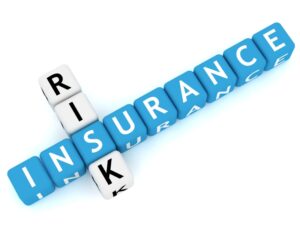Picking the right property management company is like picking a partner. There is never a more important time to have your partner by your side then in an emergency. We at Klein Property Management pride our selves on always being be available for any emergency event. Please call us at (732) 446-0611 to discuss your property management needs.
This month I have included an interested and comprehensive email about Hurricane preparedness.
Hurricane damage poses a major threat for everyone in a storm’s path, but for small business owners, a hurricane can spell destruction. In fact, in 2017, natural disasters exceeded $300 billion in damages. Many business owners can’t afford to rebuild and reinvest after their business is wiped out, leading to a high likelihood of permanent closure.
Here’s how business owners can prepare for the threat of a hurricane.
Understand Your Risk Profile
Hurricanes pose the greatest threat in the southern half of the Atlantic coast, as well as the south and Gulf coast regions. Companies further north along the coast and into the northeast and midwestern regions need to be aware that storm damage and flooding as a result from a hurricane can span as far as these areas as well.
Having your risk assessed by a professional actuarial company can offer some crucial guidance as far as how useful preparing for a hurricane (and purchasing the proper disaster insurance) can be for your business.
Fortify Your Business
As a business owner, it’s easy to believe that hurricanes only happen to other people in other cities. But in reality, weather damage can strike anyone at any time. You need to make special arrangements for the preservation of your business’s physical integrity.
But, business fortification goes beyond physical risk management. For companies in risk zones, take time to find out if your community participates in the National Flood Insurance Program, a federal safeguard that provides affordable access to flood insurance for homes and businesses in vulnerable areas. Disaster insurance is the best way to ensure that your business interests will be protected in the event of a hurricane. Selective offers flood insurance for business and personal property and contents.
Assemble a Contingency Plan
To keep your business alive in the event of a hurricane, you’ll need to build a business continuity plan. These plans must be tailored to individual businesses, of course, but important considerations will include:
- Copying and protecting important documents like business contracts, legal papers and the lease or deed for the land on which the business is located. When a hurricane threatens your equipment and other capital, you’ll need to have key documents available offsite.
- Instructing employees on their roles in the event of a hurricane, including response protocol. If your business is destroyed by a hurricane, you’ll need to have a plan in place with a designated location to continue your operations as fast as possible to avoid additional profit loss.
Consider using a template to create a business continuity plan, and research your options in terms of available disaster insurance so that the destruction of your physical business by a hurricane doesn’t mean the end of your business.
Prepare and Protect your Property
Preparing your property is also essential to protecting your business from hurricane damage.
Here are a few tips from the National Hurricane Survival Initiative:
- Hire a professional roofer to determine if your company’s roof needs to be reinforced or replaced.
- Consider installing features around the windows so storm shutters can be used when the need arises.
- Clear out a space to move valuable gear and equipment when a hurricane threatens.
- Evaluate your exterior property and trim any trees and/or branches that could become flying projectiles.
- Purchase flood insurance if you haven’t already. Remember, flood insurance is separate from business owners insurance and usually doesn’t go into effect until 30 days after purchase.
- Prepare a contact list so all employees can be made aware of violent weather.
- Make copies of important documents as backups in the event the originals are damaged or destroyed.
- Invest in an electric generator or learn how to use it, making sure the one you purchase is for commercial use.
- Fill canisters and storage containers with gasoline to fuel power equipment if the electricity goes out.
- Develop an emergency kit. Ideally, they should have 72 hours worth of water, non-perishable food, first-aid supplies and batteries for flashlights and radio equipment. FEMA has a list of what other supplies to include, such as a manual can opener and toiletries.
Check out the National Hurricane Survival Initiative’s website for additional ways to ready your property for hurricane season.




